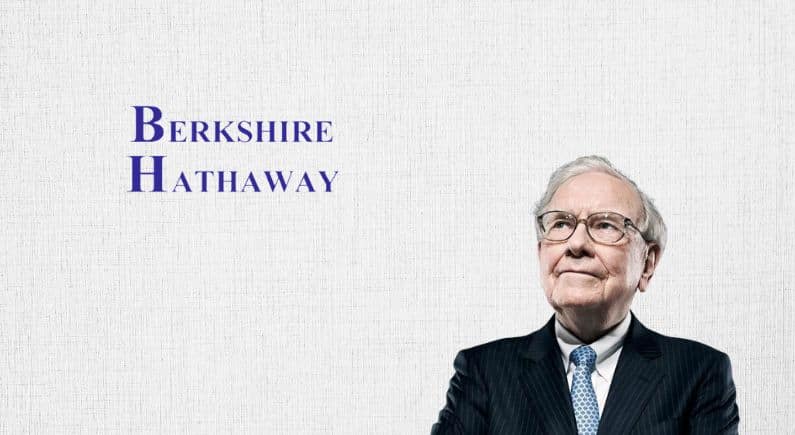Beyond finance: 5 uses of Blockchain aside from Bitcoin

Blogger JBers examines how blockchain is shaping the way we run, develop, and envision the industries of the future. Cryptocurrency is just one of the many practical applications of blockchain technology. Most commonly known as the underlying technology that powers Bitcoin, Ethereum, and the thousands of other cryptocurrencies being traded across the planet, blockchain is finding use cases in almost every significant industry. Here are 5 uses of blockchain outside of finance where blockchain is becoming more widely used.
Dynamic Energy Grids
Secure digital ledger technology could shape the way we use energy grids in the future.
Secure digital ledger technology could shape the way we use energy grids in the future. An article by FXCM on uses of blockchain beyond Bitcoin outlines the numerous ways in which blockchain can be leveraged for billing, metering, and energy asset management. One example they provide is how in 2019, the Japanese company Fujitsu harnessed blockchain technology to provide transparency for energy transactions in its Demand Response (DR) programs, which allowed factories and retail stores to exchange excess energy when demand was high. Given its 40% success rate, Fujitsu expects more enterprise energy consumers to participate in the future. The way they used blockchain also provides a model for small energy producers like solar farms or biomass plants to operate micro grids with streamlined convenience, transparency, and security – allowing more everyday users to circumvent large, centralised energy.
Stronger Cyber Security
Because the blockchain is decentralised, it offers no specific vulnerable points to would-be hackers. And thanks to the chronological immutability of every piece of data that occupies a place on the chain, it becomes easy for users to trace how their information is used. AIBC News explains that this is why the blockchain is virtually unhackable as per the standards of cyber security experts. Its combined immutability and decentralised nature reduces opportunities for committing fraud, creating counterfeits, or making any other exchanges without the knowledge of everyone on the blockchain.
Secure Digital Voting
By treating each vote as a blockchain-based token, no vote can be made twice or interfered with in any way.
Similarly, the security applications of blockchain-based networks also have practical use cases in identity verification and voting. The Balance details how Canadian computer scientists have been developing a platform called CommitCoin, which is aimed at utilising blockchain as a form of digital data carbon dating. Leveraging the way each and every change on a blockchain is indelibly and chronologically recorded, the Ontario-based project aims to provide a way for people to secure their votes without interference from any politician or organisation – potentially eliminating any and all instances of fraud in digital elections. An American company called FollowMyVote has been following in the same footsteps. “There is a common misconception that voting cannot be done online in a secure way,” explains FollowMyVote CEO Adam Earnest. “However, the introduction of blockchain technology is changing the conversation.” By treating each vote as a blockchain-based token, no vote can be made twice or interfered with in any way without the interaction showing up on the chain.
A New, Decentralised Internet
Popularised by the HBO dark comedy Silicon Valley, the concept of a decentralised Internet has actually been in development in the real world for quite some time via a U.S. company called Blockstacks. The Internet as we know it today runs on private servers that collect and manage data on a worldwide scale, which has led to privacy concerns and ethical issues concerning mass public data mismanagement. Blockchain could eliminate these problems by replacing the TCP/IP protocol stack backbone of the modern Internet with a decentralised P2P network. This could nix the need for a central authority to oversee, manage, and validate transactions over the network, as a blockchain-based Internet would instead only rely on P2P interactions to function in the same way as the modern Internet functions today. Apart from fixing data mismanagement and identity theft concerns, the decentralised nature of this ‘new Internet’ will also allow it to keep functioning even when a few nodes in the network malfunction – unlike today’s Internet wherein a single server crash could potentially disable the whole system.
Smart Contracts
Blockchain-based smart contracts enable the digital facilitation and execution of contract stipulations without the need for legal third parties. One of the most promising applications of this today is the Mycelia Creative Passport (MCP), which creator and English musician Imogen Heap describes as “a peer-to-peer verified digital identity standard which holds verified profile information, IDs, acknowledgements, works, business partners and payment mechanisms, sharing skills and projects to find our champions, fans and collaborators.” Citing the lack of innovation in the music industry, Heap explains that MCP could eliminate the middlemen in an industry that has notoriously disenfranchised its creatives, giving artists more control of their work and better compensation as well. Based on MCP, smart contracts for songs and albums could include automated payment stipulations for everyone involved in the creation process, from musicians and producers to fans that contribute their own resources to music productions. Similarly, smart contracts can be applied to any other industry wherein contracts define compensation parameters, including but not limited to the legal sector, real estate, B2B partnerships, and even the global supply chain.
In short, these uses of blockchain are just the tip of the blockchain-based iceberg. Just as blockchain technology upended the world of finance, so will it continue to shape the way we run, develop, and envision the industries of the future.
Find more information in the reference links below:
https://www.fxcm.com/uk/insights/blockchain-uses-beyond-bitcoin/
https://www.forbes.com/sites/paularmstrongtech/2018/07/05/imogen-heap-talks-mycelia-mi-mu-gloves-and-creative-passport-blockchain-project/#bf4e3b7d92f4
https://hackernoon.com/the-battle-over-decentralized-internet-qsi936ri
https://www.thebalance.com/how-the-blockchain-will-change-how-we-vote-4012008
About AIBC Summit:
AIBC Summit is the emerging tech destination for leading brands in the sector, held in both Malta and Manila.? The event brings together thought leaders in the blockchain and AI space.? Join us at the first edition of Manila AIBC Summit, the future tech event of the year, set to take place on the 08-09 June 2020.






